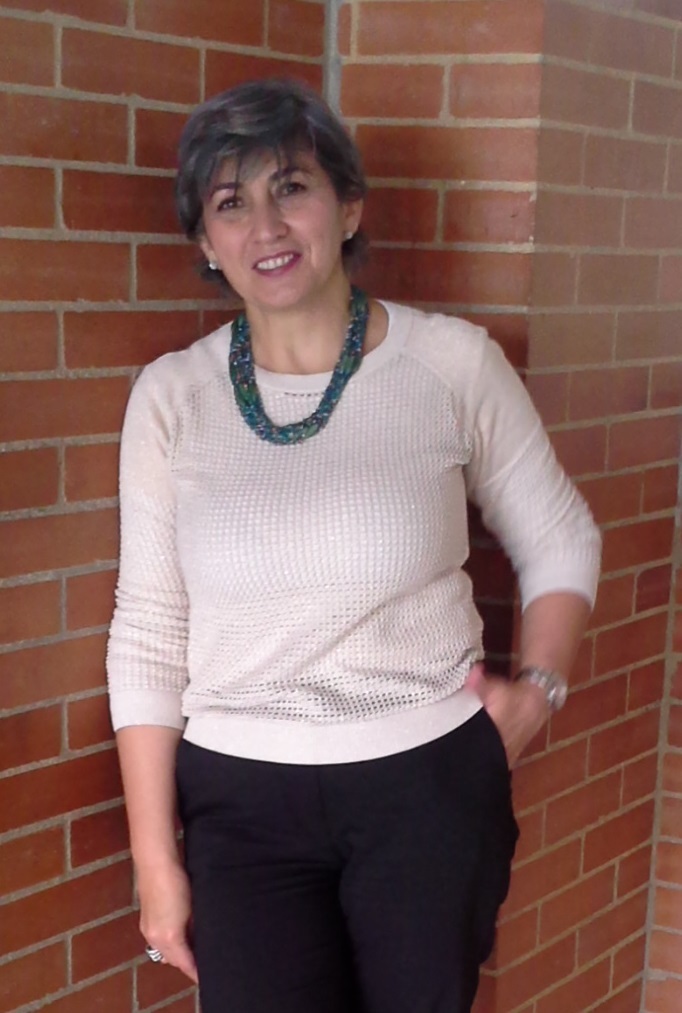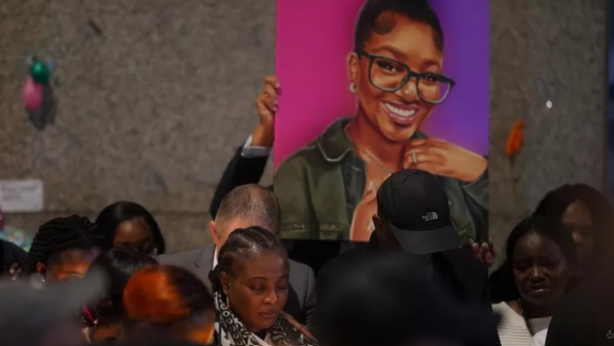What I’m Struggling With: Being A Feminist Activist in Latin America
Being an activist and feminist is no easy task. Both are seen in a derogatory sense in so many places, and Colombia is no exception. With the longest-standing internal armed conflict in the region only adding to women’s fight for emancipation, there is also the task of denouncing a social system that has given advantages to men to the detriment of women, opposing the conditions of inequality, discrimination and different forms of violence, has put women at risk on many occasions.
I have been working as a social facilitator for more than 20 years in a context that was not designed for us. In my work, I provide tools for women so that they can learn to simply be real, human women.
And since gender equality and equity is not only a “women’s issue,” I always invite men to join these initiatives. Men are not the problem; the problem is patriarchy, sexism, and male domination—and it’s on all of us to transform these realities.
“Men are not the problem, the problem is patriarchy, sexism and male domination.”
My personal experience has been based mainly in the Colombian Caribbean and in the department of Cundinamarca. Having the opportunity to work in favour of women and girls has been a gratifying experience because I have been able to work with women and girls of all ages: from pre-school children to older women, going through all social strata and levels of education.
I have been a guest lecturer in both public and private universities in the Colombian cities of Valledupar, Bogotá, and Bucaramanga, as well as in conferences for women from the Colombian National Army, and female students training for the Police Force.
Knowing the Caribbean region and its particularities, the first exercise I carried out was for women and girls to actually recognise that violence was exercised against them, and that this is not acceptable — even though it is normalised by society; To recognise their bodies as their own property; To acknowledge the preconceptions that we have— whether about work, family, domestic and care responsibilities, vulnerability, and self-care — from a gender perspective; To acknowledge human life and dignity as fundamental values, and education as a fundamental tool for personal and community development.
“The first exercise I carried out was for women and girls to actually recognise that violence was exercised against them, and that this is not acceptable…”
And so, I began my intervention. I carried out a census in my own way to find out how many illiterate women there were in the municipality, and I found there were many of them, often very young women with large families. It was a concern for me that in 2001, this was the reality. At that time, there was no validation for literacy or primary education via evening classes for adults.
I looked for a way for a public educational institution to support me in making these women literate. It was not difficult to find support or to agree on an evening class schedule that was convenient for all of them. Everything was going well, but we hit an impasse: some of them did not have the approval of their husbands to study.
I went from house to house to talk to each of their husbands and I found the fear that they had, which was that their partners would be unfaithful to them or leave them when they were educated. But that was not the only reason. Their insecurity also lay in the fact that they were also illiterate… I invited them to study, but they did not accept.
However, I achieved my goal, which was to make the women literate. I am convinced that social change is made by all of us. We managed to graduate 25 women and 2 men from 5th grade of primary school. I will never forget that celebration and we danced (very animatedly) to the song “Bajo el Palo de Mango” by Diomedes Díaz! The change in these women is gratifying, because when you educate one woman you change her home – and if you educate many, you can change a community.
“The change in these women is gratifying, because when you educate one woman you change her home – and if you educate many, you can change a community.”
Women were also empowered to be economically independent and to understand that their worth did not depend on their husband’s surname. Thus, several of them built their own houses with productive backyards (with chickens, turkeys, pigs—and in some cases vegetables) and small businesses, among which I remember one of “materas” and “bateas” (mobile washing receptacles that can be easily moved to where it was necessary to take them, due to the scarcity of water in the region).
I conducted training sessions for women, men, and adolescents on issues of visibility, awareness, and eradication of violence against women and knowledge of their sexual and reproductive rights. With adolescent women and men, we raised awareness around the importance of education and care for the environment, carrying out tree-planting campaigns in the municipality. We also addressed the importance of self-care for full human development as an exercise of freedom.
My work fills me with emotion because I see my students’ growth: becoming women who do not let their rights be violated, and adolescents who are clear about their goals. I still have contact with many of them and I am delighted to know that the seed I sowed continues to bear fruit.
“My work fills me with emotion because I see my students’ growth: becoming women who do not let their rights be violated, and adolescents who are clear about their goals.”
In my advocacy, it is clear to me that contributing to peace in Colombia is not the responsibility of the government in power. On the contrary, it is contributing to the construction of peace for which no one feels responsible, and which we build on a day-to-day basis. It is a commitment to the Colombia that we deserve, with a civil society that educates its children by example, and our behaviour and attitudes are proof of the change. Peace is built with daily actions.
I recognise myself as a feminist, because “feminists are not born, they are made”, so says Gloria Jean Watkins, better known by her pseudonym Bell Hooks, with whom I fully agree.
Feminism gives us transformative tools. It is a place of meeting and generational exchange, where we encourage critical thinking, where we have achieved great and small daily revolutions—both collectively and individually—and today, I’ve shared mine. Imagine a new world that is growing every day, where we realise that we are not alone.
Beatriz Ramírez David

Beatriz Ramírez David is a columnist in “Mundo en femenino” (“the Feminine World”) in the digital magazine Panorama Cultural, an initiative that promotes equality and the full integration of women. She has more than 20 years of experience as a facilitator and consultant on gender issues, women’s empowerment, equal rights, and social work with communities at high risk of vulnerability.
Beatriz is also an international speaker and panelist on gender, women, social inclusion, and peacebuilding, Ambassador for Women Leading Latin America, Global Ambassador NERDS RULE INC, Founder of Fundación Unidas: Mujeres Construyendo Tejido Social, Co-founder of the ¡Párala Ya! network, International Coordinator of the Women’s Empowerment Commission at OMIS, and Global Director of the Commission for the Promotion of Gender Equality and the Empowerment of Women and Girls of Global Compact Women Leaders.



This blog was… how do you say it? Relevant!! Finally I have found something which helped me. Appreciate it!
Wow, this post is fastidious, my younger sister is analyzing these kinds of things, thus I am going to convey her.
Wow, superb blog layout! How long have you been blogging for? you make blogging look easy. The overall look of your website is fantastic, as well as the content!
I’m extremely inspired along with your writing abilities as neatly as with the format to your weblog. Is that this a paid subject or did you modify it your self? Either way keep up the nice high quality writing, it is rare to peer a nice blog like this one nowadays..